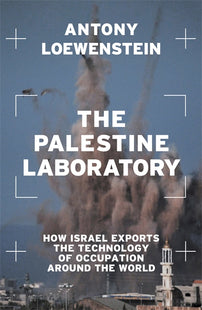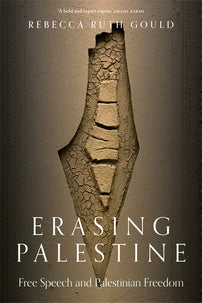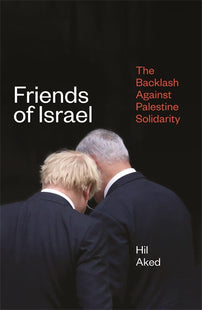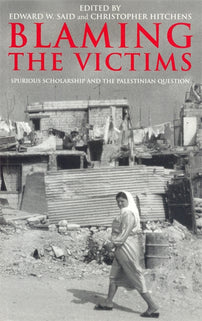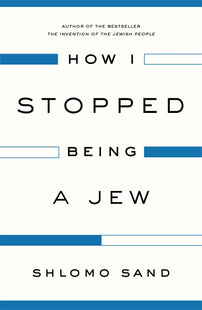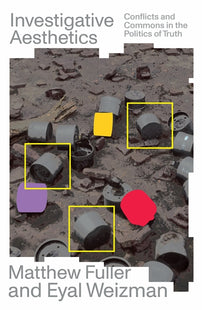Enzo Traverso: The war in Gaza ‘blurs the memory of the Holocaust'
In this interview, the Italian historian Enzo Traverso warns against the devastating effects of using the memory of the Holocaust to justify the ‘genocidal war’ being waged by the Israeli army in Gaza.
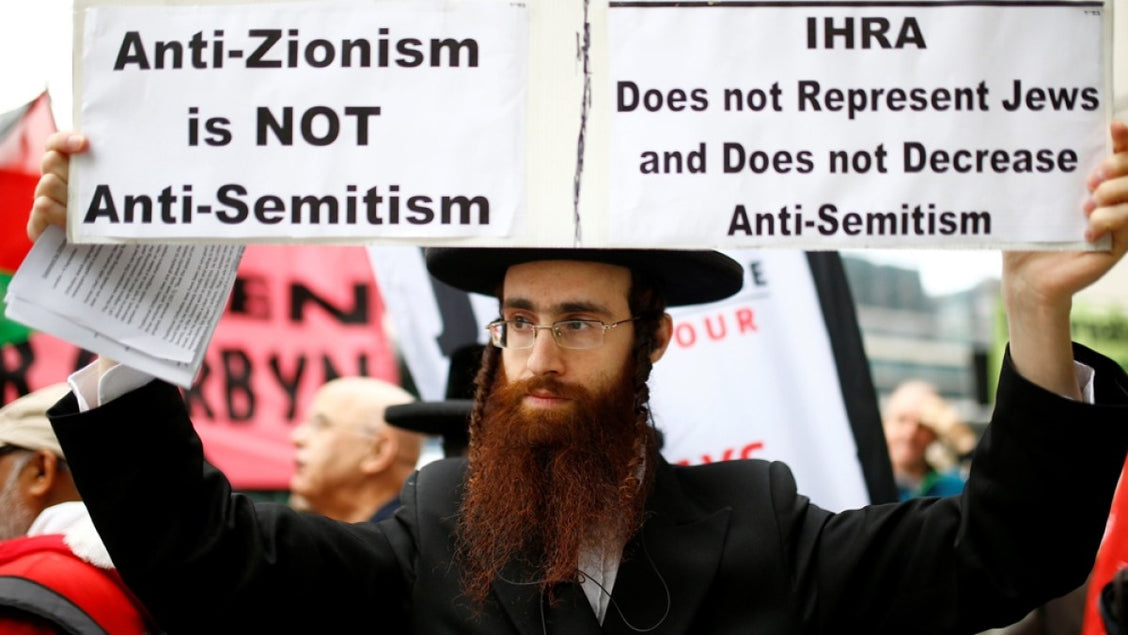
Interview by Joseph Confavreux and Mathieu Dejean
**This article originally appeared in Mediapart on 5 November 2013.
Italian historian Enzo Traverso, a specialist in totalitarianism and the politics of memory, teaches intellectual history at Cornell University in the United States. Currently in Paris, the author of The Origins of Nazi Violence, The End of Jewish Modernity, Left-Wing Melancholia and Revolution: An Intellectual History analyses in this interview the potentially devastating effects of using the memory of the Holocaust to justify the ‘genocidal war’ waged by the Israeli army in Gaza.
While denouncing the terror of 7 October, he warns against falling into the trap set by Hamas and the Israeli far right, which would lead to the destruction of Gaza and a new Nakba. ‘You can demonstrate for Palestine without flying the Hamas flag; you can denounce the terror of 7 October without condoning a genocidal war waged under the pretext of Israel’s “legitimate right to defend itself”.’
Mediapart: In The End of Jewish Modernity you argued that after having been a hotbed of critical thought in the Western world, Jews found themselves, in a kind of paradoxical reversal, on the side of domination. Does what is happening today confirm what you wrote?
Enzo Traverso: Unfortunately, what is happening today seems to me to confirm the underlying trends that I analysed, and this confirmation is not at all pleasing. In that book, I showed that the Jews’ entry into modernity towards the end of the eighteenth century was based on a particular political anthropology. This diaspora minority came up against a political modernity shaped by nationalism, which saw them as a foreign body, irreducible to nations conceived as ethnic and territorial communities.
At the turn of the twentieth century, in the wake of their emancipation and involved in the secularisation of the modern world, Jews found themselves in a paradoxical situation: on the one hand, they were gradually distancing themselves from religion, enthusiastically embracing the ideas inherited from the Enlightenment; on the other, they were confronted with the hostility of an anti-Semitic environment. As a result, they became a hotbed of cosmopolitanism, universalism, and internationalism. They embraced all the avant-garde currents and embodied critical thought. In my book, I make Trotsky, a Russian revolutionary who lived most of his life in exile, the emblematic figure of this diaspora Jewishness, anti-conformist and opposed to power.
The landscape changed after the Second World War, after the Holocaust and the birth of Israel. Of course, cosmopolitanism and critical thinking did not disappear, they remained features of Jewishness. In the second half of the twentieth century, however, another Jewish paradigm emerged, whose emblematic figure was Henry Kissinger, a German Jew exiled in the United States who became the principal strategist of American imperialism.
With Israel, a people who had been, by definition, cosmopolitan, diasporic and universalist became the source of the most ethnocentric and territorial state imaginable. A state that has built itself up through wars against its neighbours, conceiving itself as an exclusive Jewish state – this has been enshrined in its Basic Law since 2018 – and planning to expand its territory at the expense of the Palestinians. I see this as a major historical shift, pointing to two antinomian poles of modern Jewishness. The war in Gaza confirms that the Israeli government is now steered by the most narrow-minded, xenophobic and racist nationalism.
[book-strip index="1"]
On the other hand, the Hamas offensive on 7 October acted as a powerful reactivation of memory in Israel, to such an extent that the memory of the Holocaust is now being used to justify the massacres in Gaza. How is it possible to maintain a Jewish memory that is not exploited in this way? Is it possible to reactivate the earlier Jewishness you were talking about?
What is happening risks considerably blurring our cultural, intellectual, and memorial landscape. I can understand the very strong emotional reactions to 7 October, but they should not stifle a necessary effort at contextualisation and rational understanding. We are not in a position today to analyse the situation with the necessary critical distance, history is always written after the event, but certain things are quite clear.
On the one hand, the attack carried out by Hamas on 7 October was an appalling massacre that nothing can justify. On the other hand, what is happening in Gaza today has the hallmarks of a genocide that must be stopped: a population of 2.5 million people is trapped in an area under intensive bombardment, deprived of electricity, gas, food, water, and medicine. Its infrastructure is being systematically destroyed. A million civilians have been forced to move to the south of Gaza, where they are still being bombed. Hospitals are paralysed, and there is universal despair.
I am aware that the concept of genocide should not be used lightly, that it belongs to the legal domain and is ill-suited to the social sciences, that it has always been used politically to stigmatise enemies or defend particular memories. This is true, but the concept does exist, and the only normative definition we have, that of the 1948 UN Convention, corresponds to the situation that exists today in Gaza.
In such a context, the evocation of the Holocaust becomes a permanent source of misunderstanding. The instrumentalisation of the memory of the Holocaust is not new. Today, it is being used to legitimise the war in Gaza. When the Holocaust is brought in, it is in order to present anti-Semitism as the key to explaining 7 October, and to express surprise, even indignation, at the wave of solidarity with the Palestinians that has been shown en masse in the global South.
7 October was certainly an appalling massacre, but to describe it as the greatest pogrom in history after the Holocaust is to suggest a continuity between the two. This leads to a fairly simple interpretation: what happened on 7 October was not the expression of hatred engendered by decades of systematic violence and despoilment suffered by the Palestinians; it was a new episode in the long historical sequence of anti-Semitism, running from medieval anti-Judaism to the Shoah, via the pogroms in the Tsarist Empire. Hamas would therefore be the umpteenth avatar of eternal anti-Semitism. This reading makes the situation unintelligible, crystallising these antagonisms and serving to legitimise Israel’s response. A few years ago, Netanyahu actually declared that if Hitler had carried out the Shoah, the Grand Mufti of Jerusalem had been its inspiration.
[book-strip index="2"]
What are the possible consequences of such an interpretation for the memory of the Holocaust? Is there not also the risk of a resurgence of anti-Semitism?
Yes, there is that risk: a genocidal war waged in the name of remembering the Holocaust can only offend and discredit that memory, with the result of legitimising anti-Semitism. If this campaign is not stopped, no one will be able to talk about the Holocaust without arousing suspicion and disbelief; many will end up believing that the Holocaust is a myth invented to defend the interests of Israel and the West. The memory of the Shoah as a ‘civic religion’ of human rights, anti-racism and democracy would be reduced to nothing. This memory has served as a paradigm for constructing the memory of other forms of mass violence, from the military dictatorships in Latin America to the Holodomor in Ukraine and the genocide of the Tutsis in Rwanda. If this memory were identified with the Star of David worn by an army carrying out genocide in Gaza, the consequences would be devastating. All our points of reference would be blurred, both epistemologically and politically.
We would then enter a world where everything is equivalent, and words no longer have any value. A whole series of reference points that make up our moral and political conscience – the distinction between right and wrong, defence and offence, oppressor and oppressed, perpetrator and victim – would be in danger of serious damaged. Our conception of democracy, which is not just a system of laws and institutional arrangements but also a culture, a memory and a set of experiences, would be weakened. Anti-Semitism, which is historically on the decline, would experience a spectacular new upsurge.
You live in the United States, but you are very familiar with France and Germany, where there is a great deal of guilt in society about what happened to the Jews during the Second World War. How do you interpret the reactions of these countries’ governments.
In the United States, the context is more reminiscent of the Vietnam War than the Holocaust, because the United States is directly involved in the war in Gaza. It is not simply a question of accusing the Western powers of complicity by omission, because they remained passive in the face of the extermination of the Jews or, in the case of France, stood aside during the genocide of the Tutsis in Rwanda. The situation is no longer the same: a genocidal war is being waged in Gaza with the green light from representatives of the Western powers, who have all travelled to Tel Aviv to lend their support to Israel.
The United States has deployed two aircraft carriers in the eastern Mediterranean to reassure the Israeli army. Everyone repeats that Israel has the right to defend itself in accordance with international humanitarian law – when Israel has been violating that law for decades and it is clearly not being respected in Gaza. Israel is acting with the military and financial support of the United States. As in the Vietnam War, people are demonstrating because they know that the United States has the power to stop this war. I believe that the scale of the US protests is also due to the heightened awareness of inequality and racial discrimination that has developed across the country in the wake of Black Lives Matter.
In France, several demonstrations have been banned, but opposition to the war is also very widespread. It’s worth noting that the global South is demonstrating not just in front of Israeli and American embassies, but also within France. Al Jazeera reports make fun of Macron, who one day calls for an international coalition against Hamas and the next for a humanitarian aid coalition, without ever indicating who would be part of these coalitions, how they would act and by what means. It all seems a clumsy and rather pitiful improvisation. Those who expected France to adopt a more independent and dignified stance, like Chirac’s in 2003 at the time of the war in Iraq, have been deeply disappointed.
In France, La France Insoumise has been accused of anti-Semitism by almost all political forces. Its voice has been marginalised after it refused to describe Hamas as a terrorist organisation. How do you see this mechanism?
It’s a huge smokescreen, a media operation. It’s pretty pathetic to use this tragedy to settle political scores. You can criticise one position or another taken by the representatives of LFI, the only political force represented in the National Assembly clearly opposed to this war, but to accuse them of anti-Semitism is simply grotesque.
When it comes to terrorism, however, there are some fairly simple things to say. Firstly, there is an extraordinary hypocrisy on the part of Western countries that refuse to negotiate with Hamas because it is a terrorist organisation, while demanding the release of the hostages. But with whom is the release of the hostages being negotiated, if not with Hamas?
On the other hand, Hamas killed 1,400 people on 7 October, including more than a thousand civilians. It was a massacre of civilians, planned and claimed. It is therefore clear that this was a terrorist act. But describing Hamas as a terrorist organisation does not solve the problem, because Hamas cannot be reduced to its terrorist practices. The ‘terrorism’ of Hamas is comparable to that of the Palestine Liberation Organisation before the Oslo Accords, of the Irgun before the birth of the state of Israel, of the National Liberation Front during the Algerian War. Resort to means of action that can be described as terrorist is not incompatible with the political objectives of a national liberation movement.
Historically, terrorism has been the weapon of the poor and of asymmetrical wars. Hamas fits the classic definition of ‘partisan’ quite well: irregular fighters with a strong ideological motivation, rooted in a territory among a population who protect them. Hamas takes hostages; the Israeli army takes prisoners and causes ‘collateral damage’ during its military operations. Hamas’s terrorism is just a reflection of Israel’s state terrorism. Hamas wants to destroy Israel, without having the means to do so; Israel wants to destroy Hamas, after favouring it for years against the PLO, by razing Gaza to the ground. While terrorism is always unacceptable, the terrorism of the oppressor is much worse than that of the oppressed.
Today, Palestinians recognise Hamas as an armed force resisting the occupation. It is not up to us to say who is part of the Palestinian resistance, based on our sympathies or ideological orientation. I have no sympathy for Hamas, but it is indisputable a component part of the Palestinian resistance. And it is only on the basis of recognising this reality that a solution can possibly be found.
Before 7 October, you said that a left that does not criticise Zionism is not authentically left. What do you mean by this?
If you want to tell the history of Zionism, you have to take into account the heterogeneity and diversity of its currents, because it is not reducible to Theodor Herzl and political Zionism. In Central Europe, for example, cultural Zionism did not advocate the creation of a state but rather a Jewish national home, which would have coexisted with the Arabs of Palestine on an extraterritorial basis; others advocated the creation of a binational state. This was the position of Yehuda Magnes, the founder of the Hebrew University of Jerusalem, and initially of Gershom Scholem and others. There was also a Marxist Zionism, represented by Ber Borokhov, and a fascist Zionism that admired Mussolini.
However, the Zionism that took hold in Israel and became the backbone of the state was political Zionism. Since its birth, this state that calls itself Zionist has, under all its governments, pursued a policy of territorial expansion and colonisation at the expense of the Palestinians, who have been expelled or segregated. I believe that a genuine left has to oppose this policy. That’s what I mean by anti-Zionism.
Many Jews are anti-Zionists. It has nothing to do with anti-Semitism, the destruction of the state of Israel or the expulsion of Jews from Palestine. There is an Israeli nation that exists, that is very much alive and dynamic and has the right to exist, but I also believe that this nation has no future with the political entity that represents it today. In the global world of the twenty-first century, a state founded on an exclusive ethnic and religious basis is an aberration, in Palestine as elsewhere. I would add that the claims that anti-Zionism is a form of anti-Semitism and that Hamas wants to destroy Israel are put forward not when Israel’s existence is threatened, but when Israel is in the process of destroying the Palestinians.
[book-strip index="3"]
Throughout history, colonisation has ended either in the eradication of indigenous peoples or the expulsion of the settlers. Israel was created in a post-colonial era. Is it possible therefore for the outcome to be different?
I have no predictive ability, but I fear the worst. The situation has been getting increasingly serious for decades. The models bequeathed by history are not necessarily valid, because we no longer live in the world of the twentieth century. Zionism is a sui generis form of colonialism, very different from the British model in India or the French model in Algeria. No one believes in the two-state solution any more, and given the acuteness of the conflicts, I find it hard to see how a binational Israeli-Palestinian state could emerge. But if we step back from the immediate situation and view things from a historical perspective, there is no alternative to the coexistence of Jews and Arabs in Palestine, on a basis of equality.
In Europe, we are faced with the legacy of a century and a half of racism and colonialism, which have left their mark on mentalities, representations, perceptions and social relations. You can see this not just in elections, but on a daily basis, with facial recognition checks in the Métro, Islamophobic laws, the immigration debate and so on. In Israel, I have the impression that racism has also become part of the natural order of things. People have habituated themselves to the segregation of Gaza, to the settlers on the West Bank who confiscate land and have reserved roads, to the checkpoints for Palestinians, to arbitrary military operations and daily harassment. On the other side of the wall, this can only produce a feeling of abandonment, despair, humiliation, and hatred. I believe that we must fight against this habituation, which is an insurmountable obstacle to any perspective of peace.
Translated by David Fernbach
